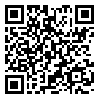Volume 7, Issue 5 (1-2015)
IJMEHM 2015, 7(5): 1-16 |
Back to browse issues page
Download citation:
BibTeX | RIS | EndNote | Medlars | ProCite | Reference Manager | RefWorks
Send citation to:



BibTeX | RIS | EndNote | Medlars | ProCite | Reference Manager | RefWorks
Send citation to:
Zahedi F, Tirgar S, Hamidi Abarghoei N, Rashidpouraei R, Larijani B. Considering Islamic principles in ethical counseling for mothers of fetuses with congenital anomalies. IJMEHM 2015; 7 (5) :1-16
URL: http://ijme.tums.ac.ir/article-1-5472-en.html
URL: http://ijme.tums.ac.ir/article-1-5472-en.html
Farzaneh Zahedi1 
 , Samaneh Tirgar *
, Samaneh Tirgar * 
 2, Nasrin Hamidi Abarghoei3
2, Nasrin Hamidi Abarghoei3 
 , Roya Rashidpouraei4
, Roya Rashidpouraei4 
 , Bagher Larijani5
, Bagher Larijani5 


 , Samaneh Tirgar *
, Samaneh Tirgar * 
 2, Nasrin Hamidi Abarghoei3
2, Nasrin Hamidi Abarghoei3 
 , Roya Rashidpouraei4
, Roya Rashidpouraei4 
 , Bagher Larijani5
, Bagher Larijani5 

1- Medical Ethics Unit, Endocrinology and Metabolism Research Center, Endocrinology and Metabolism Clinical Sciences Institute, Tehran University of Medical Sciences, Tehran, Iran;
2- Medical Ethics Unit, Endocrinology and Metabolism Research Center, Endocrinology and Metabolism Clinical Sciences Institute, Tehran University of Medical Sciences, Tehran, Iran; , s-tirgar@farabi.tums.ac.ir
3- Researcher
4- Medical Ethics and History of Medicine Research Center, Tehran University of Medical Sciences, Tehran, Iran;
5- Medical Ethics and History of Medicine Research Center, and Endocrinology and Metabolism Research Institute, Tehran University of Medical Sciences, Tehran, Iran
2- Medical Ethics Unit, Endocrinology and Metabolism Research Center, Endocrinology and Metabolism Clinical Sciences Institute, Tehran University of Medical Sciences, Tehran, Iran; , s-tirgar@farabi.tums.ac.ir
3- Researcher
4- Medical Ethics and History of Medicine Research Center, Tehran University of Medical Sciences, Tehran, Iran;
5- Medical Ethics and History of Medicine Research Center, and Endocrinology and Metabolism Research Institute, Tehran University of Medical Sciences, Tehran, Iran
Abstract: (11438 Views)
In recent decades, advancements in genetics and medical technologies have made it possible for clinicians to diagnose and sometimes treat fetal abnormalities in early gestational stages. This issue presents numerous ethical challenges for parents, doctors, ethicists, jurists and other professionals in terms of the continuation or termination of such pregnancies. A non-systematic review was performed to extract the main ethical codes that should be considered when offering counseling to pregnant mothers of fetuses with congenital anomalies. Moreover, since the attitude toward the status of such fetuses in the world of creation can strongly affect ethical decision-making, we attempted to investigate the issue further by offering some Islamic perspectives on the subject.Considering Islamic principles in offering ethical advice to Muslim parents of fetuses with congenital anomalies will help them make an informed and more appropriate decision in serenity. We hope the results of this study will facilitate ethical decision-making in health care and related disciplines, and thus help us deal properly with the issue of disabled fetuses.For future studies, it is recommended to compile related ethical guidelines based on Islamic principles to investigate various aspects of the issue.
Type of Study: Review |
Subject:
Medical Ethics
Received: 2015/01/11 | Accepted: 2015/01/11 | Published: 2015/01/11
Received: 2015/01/11 | Accepted: 2015/01/11 | Published: 2015/01/11
Send email to the article author
| Rights and permissions | |
 |
This work is licensed under a Creative Commons Attribution-NonCommercial 4.0 International License. |



